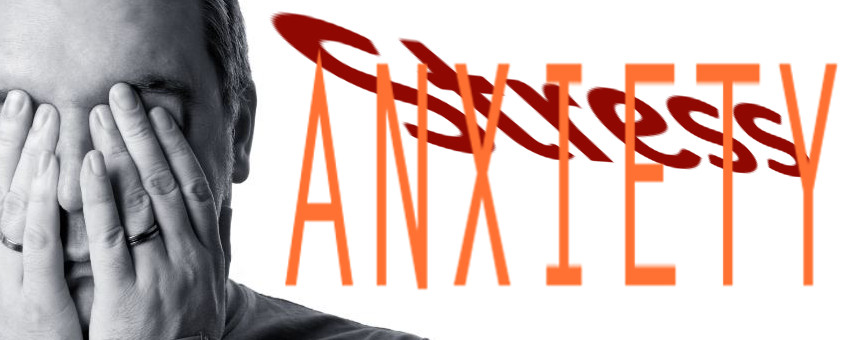What Are Stress and Anxiety?
Stress refers to any demand placed on your brain or physical body. People can tell feeling stressed when various challenging demands are placed on them. The feeling of being stressed can be prompt by an incident that makes you feel frustrated or nervous.
Meanwhile, anxiety is a feeling of fear, worry, or unease. It can be a response to stress, or it can happen in people who are unable to identify significant stressors in their life.
Stress and anxiety are not always bad. In the short term, they can aid you to overcome a challenge or a dangerous situation.
Worrying about finding a job, feeling nervous before a big test, or being embarrassed in certain social situations are some instances of daily stress and anxiety.
However, if stress and anxiety start to interfere with your daily life, it may point out a more serious issue. If you are avoiding circumstances due to unreasonable fears, constantly worrying, or experiencing severe anxiety about a traumatic event weeks after it happened, it may be time to seek help.
What Are The Signs and Symptoms of Stress and Anxiety?
Stress and anxiety can induce both physical and psychological symptoms. People experience stress and anxiety separately.
The common physical symptoms are:
- Stomachache
- Muscle tension
- Headache
- Rapid breathing
- Fast heartbeat
- Sweating
- Shaking
- Dizziness
- Frequent urination
- Change in appetite
- Trouble sleeping
- Diarrhea
- Fatigue
Stress and anxiety can also produce mental or emotional symptoms in addition to physical ones.
These are as follows:
- feelings of impending doom
- panic or nervousness, especially in social settings
- difficulty concentrating
- irrational anger
- restlessness
People who have stress and anxiety for long periods of time are susceptible to experience negative related health outcomes also. They are more prone to develop heart disease, high blood pressure, diabetes, and may even develop depression and panic disorder.
What Are The Causes of Stress and Anxiety?
For the majority of people, stress, and anxiety come and go. Usually, They occur after particular life events but then fade away.
Common stressors are:
- moving
- starting a new school or job
- having an illness or injury
- having a friend or family member who is ill or injured
- death of a family member or friend
- getting married
- having a baby
- Drugs and medications
Drugs that constitute stimulants may make the symptoms of stress and anxiety worse. Routine use of caffeine, illicit drugs like cocaine, and even alcohol can also make symptoms worse.
Stress and Anxiety-Related Disorders
Stress and anxiety that occur very often or appears out of proportion to the stressor may be signs of an anxiety disorder. An estimated 40 million Americans live with some kind of anxiety disorder.
People suffering from these disorders may feel anxious and stressed on a regular basis and for prolonged periods of time. These disorders are as follows:
Generalized Anxiety Disorder (GAD)
It is a common anxiety disorder which is characterized by uncontrollable worrying.
Panic Disorder
It is a condition that causes panic attacks, which are moments of extreme fear followed by a pounding heart, shortness of breath, and a fear of impending doom.
Post-Traumatic Stress Disorder (PTSD)
It refers to a condition that causes flashbacks or anxiety as a result of a traumatic experience.
Social Phobia
It is a condition that produces intense feelings of anxiety in situations that involve interacting with others.
Obsessive-Compulsive Disorder
It refers to a condition that causes repetitive thoughts and the compulsion to complete certain ritual actions.
How To Manage Stress and Anxiety?
There is no one who had not experienced stress and anxiety from time to time, and there are also various strategies that you can use to make them more manageable.
Management of everyday stress and anxiety
Change in a certain lifestyle can help decrease symptoms of stress and anxiety. These strategies can be used along with medical treatments for anxiety. Techniques to reduce stress and anxiety are as follows:
- eating a balanced, healthy diet
- limiting caffeine and alcohol consumption
- getting enough sleep
- getting regular exercise
- meditating
- scheduling time for hobbies
- keeping a diary of your feelings
- practicing deep breathing
- recognizing the factors that trigger your stress
- talking to a friend
Be mindful if you intend to use substances like alcohol or drugs as ways to confront with stress and anxiety. This can result in serious substance abuse problems which can make stress and anxiety worse.
When To Seek Professional Care?
There are various ways to look for a cure for stress and anxiety. If you feel like you’re unable to fight with stress and anxiety, your primary healthcare provider may advise you to see a mental health provider. They may adopt psychotherapy, also called talk therapy, to aid you to work through your stress and anxiety. Your therapist may also employ you applied relaxation techniques to aid you to manage stress.
Cognitive Behavioral Therapy (CBT)
It is a popular and most effective method used to manage anxiety. This type of therapy train you to identify anxious thoughts and behaviors and change them into more useful ones.
Exposure Therapy and Systematic Desensitization
It can be more beneficial in treating phobias. They involve deliberately exposing you to anxiety-provoking stimuli to aid you to manage your feelings of fear.



